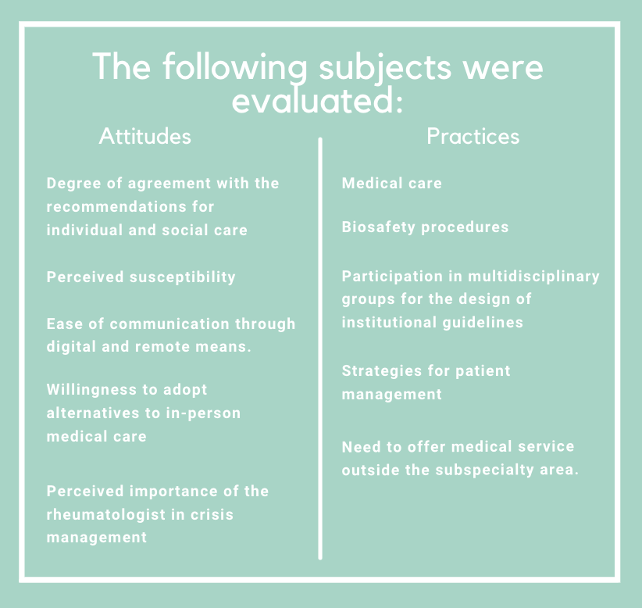How COVID-19 Reshaped Rheumatology in Latin America
In this observational cross-sectional study, investigators created a survey designed to understand the management and follow-up of patients during the COVID-19 pandemic in Latin American countries.
The COVID-19 pandemic has profoundly impacted the behaviors and clinical practice of rheumatologists in the non-English-speaking countries of Latin America from a professional, economic, and occupational standpoint, according to a study published in the Journal of Rheumatology.1
“Considering that rheumatic patients are a potentially vulnerable population, changes in behavior patterns are expected both in patients and their physicians,” stated investigators. “The emergence of COVID-19 led to unprecedented changes to rheumatology clinical practice worldwide, including the restructuring of hospitals and the rapid transition to virtual care.”
While social distancing is an effective strategy to prevent the spread of COVID-19, these new practices have had implications for patients with rheumatic diseases, including a reduction in in-person doctor visits and new difficulties in disease management.
In this observational cross-sectional study, investigators created an online survey designed to understand the management and follow-up of patients during the pandemic. The questionnaire was sent to all rheumatologists living in Latin America who were members of the Pan American League of Rheumatology Associations (PANLAR). Data was collected for 30 days during June and July 2020.

The survey included 1097 rheumatologists from 19 Latin American countries. The countries with the most respondents were Brazil (25.2%), Mexico (20.9%), and Colombia (12.8%). The median age was 48 years, 56.3% of participants were female, and 69.5% (n = 730) had over 10 years of experience in rheumatology. A total of 1052 (96%) managed adult patients and 81.8% worked in private practice.
Pre-pandemic, weekly hours of face-to-face practice totaled 27 (15-40), and while 598 (54.5%) of rheumatologists continued to offer in-person care, the survey indicated that those hours were reduced to 10 (5-20) in recent months. Additionally, poor adherence to medication was noted by almost 50% of respondents.
While (78.9%) of rheumatologists employed telehealth practices during the pandemic, they only averaged 5 (2-10) hours per week. Rheumatologists also utilized video calls, WhatsApp, phone calls, and emails to communicate with their patients. Follow-up visits were the most common virtual visit (478; 55.2%). While the majority of respondents believed telehealth was a valid strategy (85.7%), only 49.8% considered continuing it post-pandemic.
A wage reduction was reported by 86.2% of respondents. Further, approximately 50% reduced consultation fees, with an average of a 40% discount.
During the pandemic, 338 (30.8%) rheumatologists had been required to care for someone with COVID-19. In total, 7.4% (n = 81) of rheumatologists surveyed developed COVID-19 and of the 81 physicians, 8.6% were hospitalized.
The study was limited by subjectivity and recall bias, as the data was self-reported by the rheumatologists surveyed. However, the vast number of respondents from a variety of countries lead investigators to confidently state that the study reflects the impact of COVID-19 in these non-English-speaking countries. Selection bias may be another limitation, as it was distributed by PANLAR chairs, however, investigators note that each chair is elected on a democratic basis.
“During the pandemic, telehealth has had an important role in healthcare delivery, allowing for ongoing medical care while ensuring the safety of patients and physicians as well. Careful planning, outcome assessment, and adaptation of existing virtual care methods are future steps needed to achieve a successful integration of telehealth into routine rheumatology practice,” concluded investigators. “The COVID-19 pandemic has reshaped rheumatology practice in Latin America through a wide impact on rheumatologists’ clinical practice.”
Reference:
Fernández-Ávila, DG, et al. Impact of COVID-19 pandemic on rheumatology practice in Latin America. https://www.jrheum.org/content/jrheum/early/2021/06/10/jrheum.201623.full.pdf. Published June 2021. Accessed July 14, 2021.